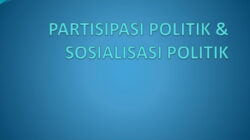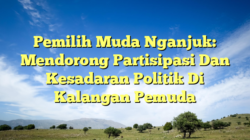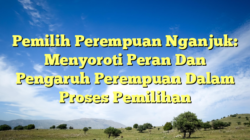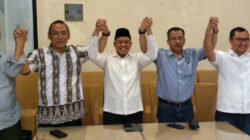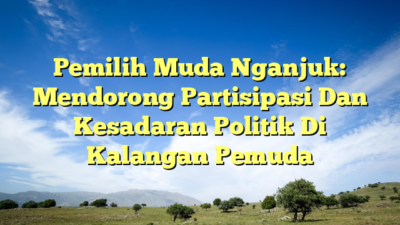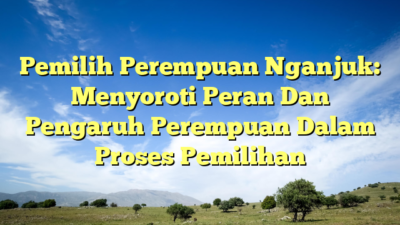Do you enjoy debating with your friends or colleagues? Or maybe you want to improve your debating skills to become more confident in public speaking? Whatever your reason, check out these five resources that can help you improve your debating skills!
25+ Contoh Soal Debat Pilihan Ganda dan Jawaban
Are you looking for some practice questions to improve your debating skills? Look no further than Soalkimia.com’s list of 25+ Debat Pilihan Ganda questions and answers. These questions cover a variety of topics and are perfect for testing your knowledge and ability to think on your feet.
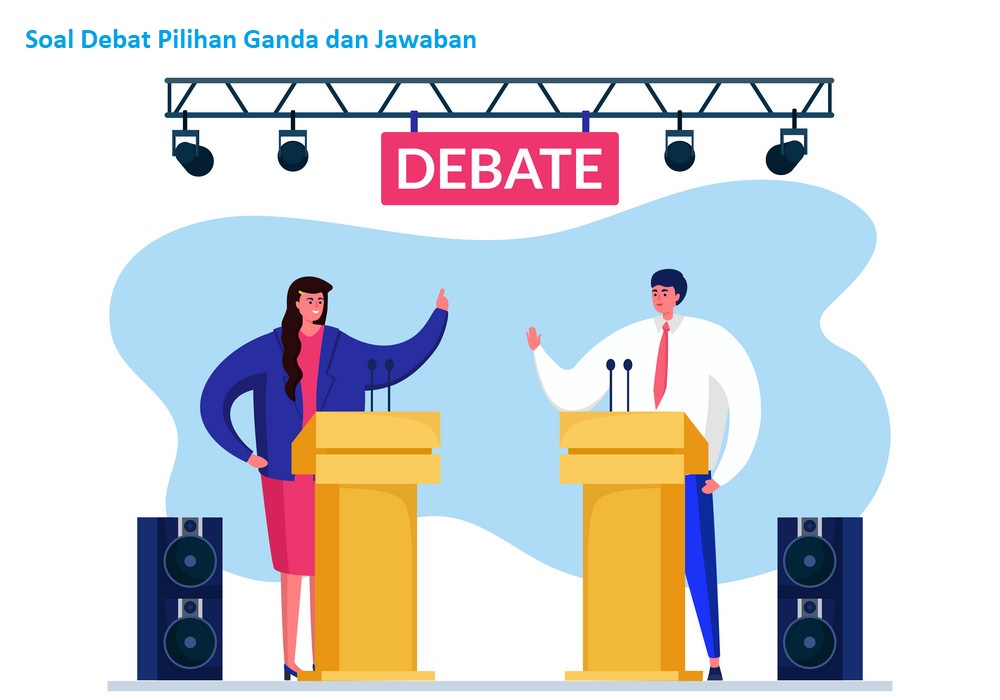
What is Debat Pilihan Ganda?
Debat Pilihan Ganda is a type of debate where participants must answer preset questions with multiple choice answers. It tests their knowledge of a specific topic and their ability to think critically under pressure.
Why should you practice Debat Pilihan Ganda?
Practicing Debat Pilihan Ganda can help improve your debating skills by honing your ability to think on your feet, analyzing information quickly, and presenting your argument in a clear and concise manner. It can also help you solidify your understanding of a particular subject.
What are the benefits of practicing Debat Pilihan Ganda?
- Improved critical thinking skills
- Increased ability to analyze information quickly
- Enhanced communication skills
- Greater confidence in public speaking
- More knowledge about specific topics
Ideas for practicing Debat Pilihan Ganda:
- Find a partner or group to practice with
- Set a timer and try to answer as many questions as possible within a certain amount of time
- Record yourself practicing and watch the video to improve your delivery and body language
How to practice Debat Pilihan Ganda:
- Choose a topic or set of questions to focus on
- Find a partner or group to practice with
- Set up a timer or choose a specific number of questions to answer
- Choose your answers and present your argument in a clear and concise manner
- Listen to your partner’s or opponent’s arguments and respond accordingly
- Repeat the process until you feel more confident in your skills
Tips for practicing Debat Pilihan Ganda:
- Take time to read and understand the question before answering
- Use evidence and examples to support your argument
- Stay calm and focused, even if your opponent tries to distract you
- Practice active listening and respond to your opponent’s arguments instead of just repeating your own points
Pertukaran Pelajar: FAKTOR-FAKTOR PEMILIHAN MALAYSIA SEBAGAI DESTINASI PERTUKARAN PENGAJIAN
If you are interested in debating international affairs, then this resource from Blogspot.com might be for you. The article covers the factors that lead Malaysia to become a popular destination for study abroad programs. Use this article to research and prepare for a debate on the topic of international education.

What is Pertukaran Pelajar?
Pertukaran Pelajar means study abroad programs in Malay. It is a popular practice among college and high school students throughout the world.
Why is Malaysia a popular destination for study abroad programs?
Malaysia is a popular destination for study abroad programs due to its low cost of living, high quality of education, and diverse culture. The country also offers a range of programs and courses, from STEM fields to languages and literature, making it a great destination for many students.
What are the benefits of studying abroad in Malaysia?
- Lower cost of living compared to many western countries
- High-quality education
- Diverse culture and experiences
- Chance to learn a new language
- Opportunity to make international connections and friends
Ideas for debating the topic of international education:
- Debate about the impact of globalization on international education
- Debate about the advantages and disadvantages of studying abroad versus studying domestically
- Debate about the impact of study abroad programs on the economy of the host country
How to prepare for a debate on international education:
- Research the topic of international education and its impact on society and the economy
- Research the specific country or region for your debate topic
- Prepare arguments for and against the topic
- Practice debating the topic with a partner or group
- Take notes during the debate to improve for next time
Tips for debating international education:
- Use statistics and evidence to support your argument
- Be respectful of your opponent’s arguments and respond tactfully
- Use clear and concise language to present your points
DIALOG RAKYAT: Sidang Parlimen dijangka paling ‘panas’, pertukaran Speaker ikut Perlembagaan
This resource from Astroawani.com covers a current event in Malaysia’s government. The article discusses the expected heated debate in parliament which centers around the replacement of the current speaker of the parliament with a new one. If you are interested in current events and politics, this resource could be an excellent starting point for improving your debating skills.

What is Dialog Rakyat?
Dialog Rakyat means “People’s Dialogue” in Malay. It refers to the discourse between the politicians and the people of Malaysia to ensure their voices are heard.
Why is the replacement of the current speaker of the parliament a heated debate in Malaysia?
The current speaker of the parliament is known for his impartiality and intelligence, and the opposition fears that the replacement of the speaker would lead to a biased parliament. The replacement would also go against the tradition of keeping the speaker in their position for multiple terms.
What are the benefits of following current events in politics?
- Improved knowledge of current affairs
- Enhanced ability to see both sides of an argument
- Opportunity to form your own opinions on issues
- Greater understanding of how the government functions
- Improved debating skills
Ideas for debating current events in politics:
- Debate about the role of social media in political discourse
- Debate about the impact of political scandals on the trust in government
- Debate about the role of the people in government decision-making processes
How to prepare for a debate on current events in politics:
- Choose a topic or current event to focus on
- Research the various sides of the issue and gather relevant statistics and data
- Prepare your argument and points for and against the issue
- Formulate questions to ask your opponents or debate partners
- Practice your debate skills with a partner or group
Tips for debating current events in politics:
- Use credible sources to back up your arguments
- Be respectful of other’s opinions
- Stay calm and composed during the debate
- Listen to your opponent’s points and respond accordingly
7+ Unsur – Unsur Debat Secara Umum & Penjelasannya [LENGKAP]
This resource from Nesabamedia.com discusses the seven elements of a successful debate. The article breaks down each element and explains why it is important for a successful and engaging debate. If you are looking to take your debating skills to the next level and make your debates more persuasive and engaging, this resource is a must-read!

What are the seven elements of a successful debate?
- Introduction
- Opening Statement
- Rebuttal
- Arguments
- Counterarguments
- Conclusion
- Summary
Why is it important to follow the seven elements of a successful debate?
The seven elements of a successful debate provide structure and organization to your argument and allow for a more persuasive and engaging debate. Following these elements ensures that your points are clear, concise, and well-supported by evidence.
What are the benefits of incorporating these elements into your debate?
- Improved organization and structure in your argument
- Greater persuasiveness in your debate
- Clear and concise presentation of your points
- Stronger support for your arguments through the incorporation of evidence and examples
Ideas for incorporating the seven elements into your debate:
- Practice using each element in your debates with a partner or group
- Create a checklist to ensure that you are following each element in your debate
- Record yourself during a debate to review and improve your performance using the seven elements
How to incorporate the seven elements into your debate:
- Begin with an introduction that clearly states your argument
- Use an opening statement to grab your audience’s attention
- Present your main arguments and support them with evidence and examples
- Anticipate and rebut your opponent’s arguments
- Present counterarguments and explain why they are not valid
- Conclude your argument with a strong and clear statement
- Summarize your main points and leave your audience with a lasting impression
Tips for incorporating the seven elements into your debate:
- Practice using each element until you are comfortable with them
- Use concise and clear language to present your points
- Anticipate your opponent’s arguments and prepare counterarguments in advance
- Use evidence and examples to support your argument
4 strategi berdasarkan sains untuk debat politik yang lebih beradab dan mendorong toleransi
Finally, this resource from Gresnews.com covers proven strategies for engaging in debates about politics in a respectful and tolerant manner. By following these tips and techniques, you can improve your debate skills while creating a more productive and inclusive conversation for everyone involved.

What are the four strategies for a more respectful and tolerant political debate?
- Use active listening
- Avoid personal attacks
- Acknowledge the validity of your opponent’s opinion
- Stay calm and composed
Why is it important to use these strategies in political debates?
Using these strategies in political debates creates a more productive and respectful conversation and encourages the challenging and learning of different perspectives. It also helps to avoid unnecessary conflict and promote tolerance.
What are the benefits of using these strategies in political debates?
- Improved communication skills
- Greater understanding and acceptance of different perspectives
- Promotion of tolerance and respect
- More productive and effective debates
Ideas for using these strategies in your political debates:
- Practice active listening by summarizing your opponent’s argument before responding
- Focus on the issue and avoid personal attacks or insults
- Acknowledge the validity of your opponent’s opinion, even if you don’t agree with it
- Take deep breaths and stay calm, even if the conversation becomes heated
How to use these strategies in your political debates:
- Practice active listening by paraphrasing and summarizing your opponent’s argument before responding
- Use “I” statements instead of “you” statements to avoid sounding accusatory
- Acknowledge the validity of your opponent’s opinion by saying “I can understand where you’re coming from” or “I see your point, but I disagree”
- Take deep breaths and step back from the conversation if it becomes heated
Tips for using these strategies in your political debates:
- Practice using these strategies with a partner or group
- Remember that it’s okay to agree to disagree
- Focus on the issue and avoid getting sidetracked
- Use respectful language at all times
In conclusion, debating is a valuable skill that can help you improve your critical thinking, public speaking, and communication skills. By using these resources and techniques, you can become a better debater while contributing to a more productive and inclusive conversation.


